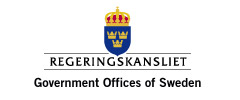Harnessing solar energy
“Thermal, solar and insulation technologies and policies in Georgia” was the focus of an international conference
25.02.2011 | Georgia Today
Georgia has an abundance of sunshine, with 280 days of clear skies and warm weather a year, the county’s potential for solar energy is limitless, explains Avtandil Geladze of The Greens Movement of Georgia/Friends of the Earth Georgia (FoE), adding for comparison that Northern Germany, which receives only 150 days of sunshine throughout the year, still manages to cover 30% of its energy consumption needs using solar energy.
“We have a great surplus of renewable energy resources [in Georgia], especially with regard to solar energy, but regrettably, [implementing projects in this field] is left to private business, concerned organizations and random initiators”, he told Georgia Today in a recent interview.
“Thermal, solar and insulation technologies and policies in Georgia” was the focus of an international conference on February 15, organized by Geladze’s organisation alongside local NGO Earth-Georgia, and the international organization, Women in Europe for a Common Future (WECF).
The conference, which was promoted as a starting point for lobbying for the use of alternative and energy-efficient energy resources in years to come, discussed Georgia’s policy towards the development of its renewable energy sources – with a focus on solar, wind, and geothermal energy.
The non-governmental organizations urged the government and official bodies to strengthen the development and introduction of alternative energy in Georgia through the creation of liberal and beneficial legal frameworks. In a post-conference statement, the organizations addressed the state and local banks, demanding that they provide financial resources to support the use of solar, wind and geothermal energy, and to make such resources affordable for private individuals, as well as to small and medium-sized businesses.
Geladze expressed concern, saying that state policy does not currently support the use of energy-efficient technologies and alternative energy resources. “Unless state incentives are introduced, the technologies will not be widely used, and will continue to make an insufficient contribution to country’s overall level energy efficiency”.
Rusudan Simonidze, Co-Chair of The Greens Movement of Georgia/FoE, went even further, adding that “The country’s legal framework and state policy towards solar, wind and geothermal energy is practically absent”. She explained that two years ago, USAID and World Experience for Georgia, prepared a draft law for parliament which would have promoted renewable energy in the country. “However it [the consideration of the draft] was suspended,” Simonidze noted with regret.
The experts say that solar energy is one of the most cost-effective renewable energy technologies currently available, and can be used to harness the power of the sun for a number of practical tasks, from solar heating to electrical power generation. It is a renewable energy system that can significantly reduce utility bills and is increasingly popular around Europe.
In 2006, the Spanish government passed a law requiring the installation of solar thermal panels on all new buildings. This measure swiftly brought a dramatic rise in capacity, bringing financial and environmental benefits to tenants. Not only have bills for energy and hot water become up to 80% cheaper, but emissions of CO2 and other noxious gases have fallen by a similar amount with each family benefiting from the scheme now producing 80%-90% less harmful emissions than normal families.
Levan Kobakhidze, General Manager of Solar Energy Georgia, a Tbilisi-based company that specializes in designing, installing and maintain solar photovoltaic and thermal systems, stresses that although the Georgian market has seen examples of solar energy systems in use, “it is minute and incomparable to European norms”.
Citing recent figures on solar energy consumption in Georgia, Kobakhidze regrets that the country still achieves almost zero percent of its electricity this way. He notes the experience of developed countries, where state policy and political will have played a crucial role in boosting the uptake of alternative energy technologies, through the introduction of tax incentives and support to consumers.
Solar water heating and photovoltaic systems are already available on the Georgian market. The price of a single water heating system can reach 1,400 lari, depending on the capacity of the tank.
Despite an increase in the number of suppliers, Kobakhidze warns customers to be careful when choosing a system, and to pay attention to quality as well as to the supplier’s experience and background. Customer satisfaction on the whole, he points out, is very high. “After all, this is free-of-charge energy harnessed from the sun. The exceptions are only those who were not lucky enough to get in touch with a decent supplier or those who chose to purchase low-quality solar thermal system.”
In Manavi, a village in Sagaredjo (Kakheti region), The Greens Movement of Georgia/FoE, installed a solar water heating system in the home of an underprivileged family as part of a community project and the results were astonishing. "In February, even on windy and cloudy days, the system was able to heat water up to 45 degrees centigrade”. This fact, explained Geladze, citing the village’s governor, “had such a huge public reaction that half of the village immediately got in touch looking for more detailed information on the system, asking where they could get it”.
The solar energy industry, which employs over 20,000 people in Europe, is also a precious source of jobs. For instance, Spain, which has become famous in Europe for its new solar-thermal power plant in Seville, is a perfect example how alternative energy can benefit both the environment and a country’s economy.
When completed, it is calculated that the plant will produce enough electricity to power most of the homes in Seville, and will employ hundreds of locals. The project will prevent the emission of 600,000 tons of carbon dioxide a year, helping Spain and the European Union meet their greenhouse gas reduction targets.
The European Commission Sustainable Energy Europe campaign, promotes the wider use of solar-thermal energy, which is clean, inexhaustible and immediately available to potential consumers. It also contributes to the European Union’s objective of generating 20% of its energy from renewable sources by the year 2020.
The Covenant of Mayors is an ambitious project by the European Commission designed to cut emissions and improve energy-efficiency through a series of agreements signed directly with municipal authorities. In an effort to help reduce the amount of CO2 emissions in the capital, Tbilisi Municipality also joined the EU Covenant of Mayors in April 2010.
By Salome Kobalava
24.02.2011
Source: Georgia Today
Related News
International Conference “Thermal solar and insulation technologies and policies in Georgia”
On February 15, International Conference “Thermal solar and insulation technologies and policies in Georgia” was organized in Sheraton Metekhi Palace
16.02.2011 | REC Caucasus
Resource centre for Water, Sanitation and Renewable Energy opened in Western Georgia by RCDA
Regional resource centre for Water, Sanitation and Renewable Energy was festively opened in Khamiskuri, Khobi district on 26th November 2010 by RCDA and local and regional authorities with participation of WECF, Greens Movement and other WECF partners
18.01.2011 | Anna Samwel
Georgian kindergarten toilet festively opened
On November 19th, 2010, international World Toilet Day, the first public Urine Diverting Dry Toilet* in Western Georgia was festively opened in the kindergarten of Khamiskuri, Khobi district by RCDA and the local authorities
22.11.2010 | Anna Samwel




































